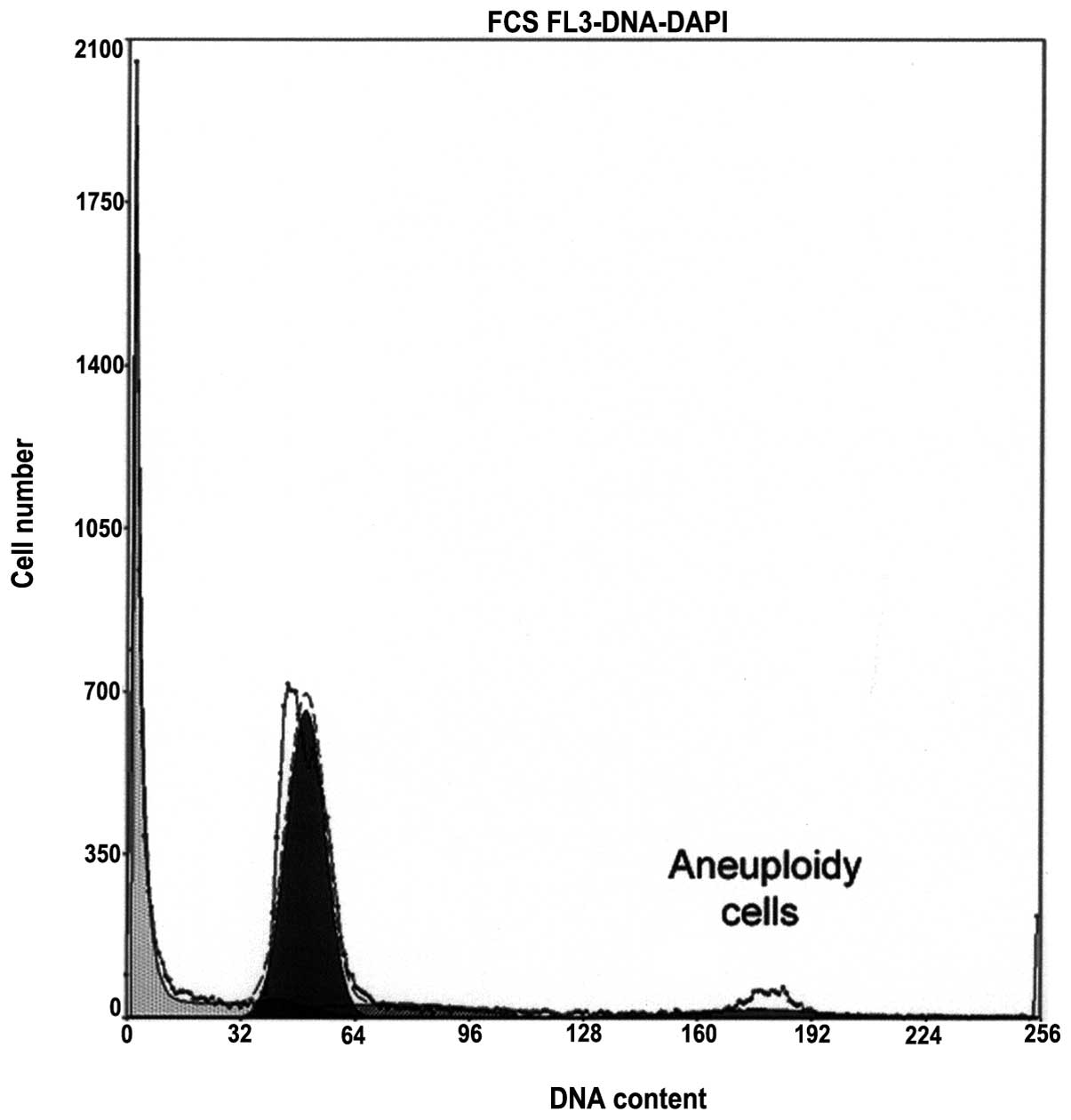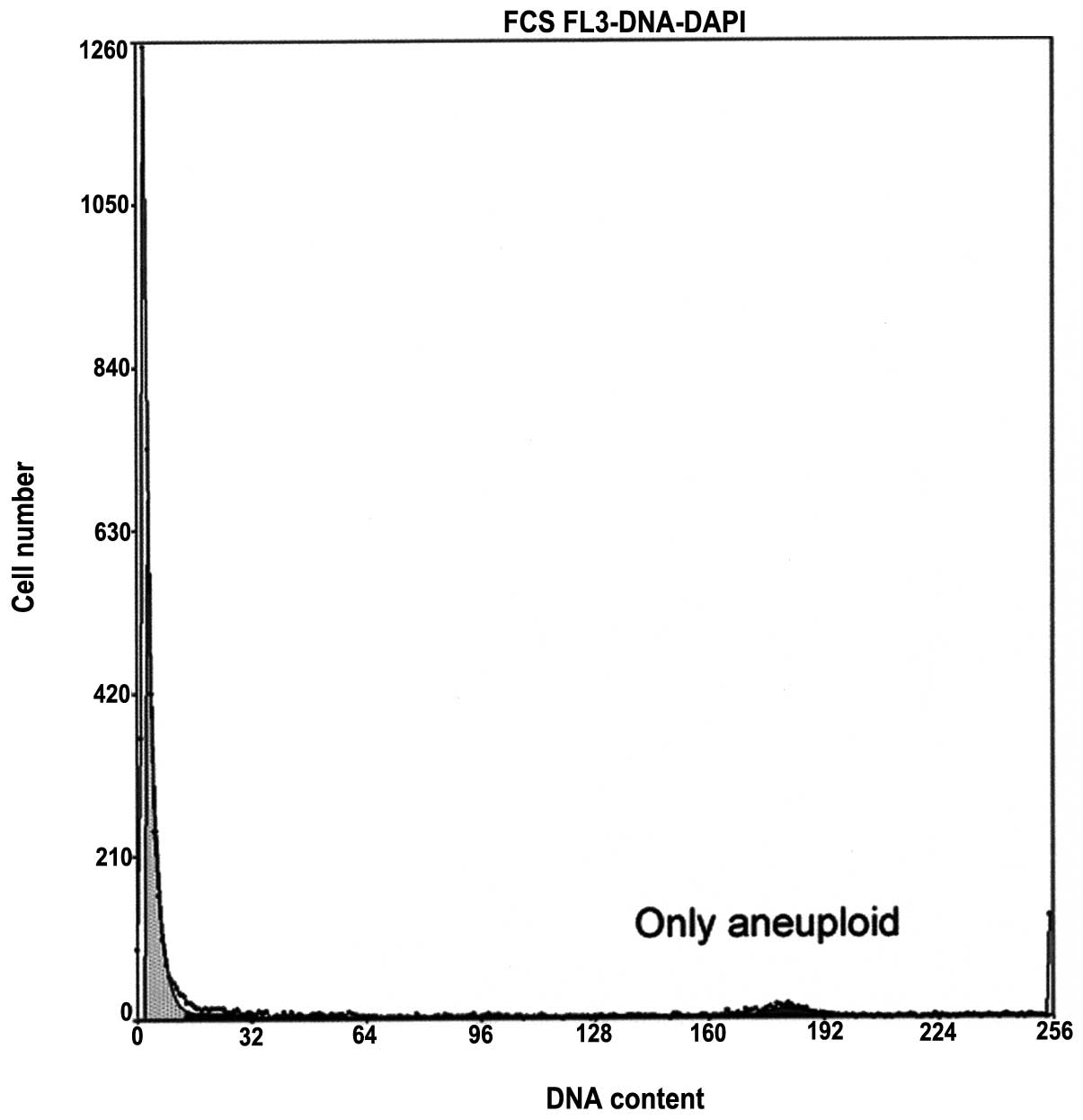|
1
|
Sharma RS, Gaur KK, Pal PC, Manocha M,
Tomar D, Khan AA, et al: Semen characteristics: Advancement in
andrological assessment. Indian J Clin Biochem. 20:173–183. 2005.
View Article : Google Scholar : PubMed/NCBI
|
|
2
|
Tremellen K: Oxidative stress and male
infertility - a clinical perspective. Hum Reprod Update.
14:243–258. 2008. View Article : Google Scholar : PubMed/NCBI
|
|
3
|
Makker K, Agarwal A and Sharma R:
Oxidative stress and male infertility. Indian J Med Res.
129:357–367. 2009.
|
|
4
|
Mahfouz R, Sharma R, Lackner J, Aziz N and
Agarwal A: Evaluation of chemiluminescence and flow cytometry as
tools in assessing production of hydrogen peroxide and superoxide
anion in human spermatozoa. Fertil Steril. 92:819–827. 2009.
View Article : Google Scholar : PubMed/NCBI
|
|
5
|
Eskenazi B, Kidd SA, Marks AR, Sloter E,
Block G and Wyrobek AJ: Antioxidant intake is associated with semen
quality in healthy men. Hum Reprod. 20:1006–1012. 2005. View Article : Google Scholar : PubMed/NCBI
|
|
6
|
Agarwal A, Sharma RK, Nallella KP, Thomas
AJ Jr, Alvarez Jg and Sikka SC: Reactive oxygen species as an
independent marker of male factor infertility. Fertil Steril.
86:878–885. 2006. View Article : Google Scholar : PubMed/NCBI
|
|
7
|
Pasqualotto FF, Sundaram A, Sharma RK,
Borges E Jr, Pasqualotto EB and Agarwal A: Semen quality and
oxidative stress scores in fertile and infertile patients with
varicocele. Fertil Steril. 89:602–607. 2008. View Article : Google Scholar : PubMed/NCBI
|
|
8
|
Varghese AC, Bragais FM, Mukhopadahyay D,
Kundu S, Pal M, Bhattacharyya AK and Agarwal A: Human sperm DNA
integrity in normal and abnormal semen samples and its correlation
with sperm characterstics. Andrologia. 41:207–215. 2009. View Article : Google Scholar : PubMed/NCBI
|
|
9
|
Carrell DT, Emery BR and Hammoud S:
Altered protamine expression and diminished spermatogenesis: what
is the link? Hum Reprod Update. 13:313–327. 2007. View Article : Google Scholar : PubMed/NCBI
|
|
10
|
Evenson DP and Wixon R: Clincal aspects of
sperm DNA fragmentation detection and male infertility.
Theriogenology. 65:979–991. 2006. View Article : Google Scholar : PubMed/NCBI
|
|
11
|
Bungum M, Humaidan P, Axmon A, Spano M,
Bungum L, Erenpreiss J and Giwercman A: Sperm DNA integrity
assessment in prediction of assisted reproduction technology
outcome. Hum Reprod. 22:174–179. 2007. View Article : Google Scholar : PubMed/NCBI
|
|
12
|
Prisant N, Escalier D, Soufir JC, Morillon
M, Schoevaert D, Misrahi M and Tachdjian G: Ultrastructural nuclear
defects and increased chromosome aneuploidies in spermatozoa with
elongated heads. Hum Reprod. 22:1052–1059. 2007. View Article : Google Scholar : PubMed/NCBI
|
|
13
|
Ehemann V, Sykora J, Vera-Delgado J, Lange
A and Otto HF: Flow cytometric detection of spontaneous apoptosis
in human breast cancer using the TUNEL-technique. Cancer Lett.
194:125–131. 2003. View Article : Google Scholar : PubMed/NCBI
|
|
14
|
Hacker-Klom UB, Göhde W, Nieschlag E and
Behre HM: DNA flow cytometry of human semen. Hum Reprod.
14:2506–2512. 1999. View Article : Google Scholar : PubMed/NCBI
|
|
15
|
Said TM, Kattal N, Sharma RK, Sikka SC,
Thomas AJ Jr, Mascha E and Agarwal A: Enhanced chemiluminescence
assay vs colorimetric assay for measurement of the total
antioxidant capacity of human seminal plasma. J Androl. 24:676–680.
2003.
|
|
16
|
Aziz N and Agarwal A: Evaluation of sperm
damage: beyond the World Health Organization criteria. Fertil
Steril. 90:484–485. 2008. View Article : Google Scholar : PubMed/NCBI
|
|
17
|
Aitken RJ, Baker MA and O’Bryan M:
Shedding light on chemiluminescence:the application of
chemiluminescence in diagnostic andrology. J Androl. 25:455–465.
2004.PubMed/NCBI
|
|
18
|
Marcus-Braun N, Braun G, Potashnik G and
Har-Vardi I: Effect of cryopreservation on quality and
fertilization capacity of human sperm. Eur J Obstet Gynecol Reprod
Biol. 116:63–66. 2004. View Article : Google Scholar : PubMed/NCBI
|
|
19
|
Agarwala A and Allamaneni SS: The effect
of sperm DNA damage on assisted reproduction outcomes. A review
Minerva Ginecol. 56:235–245. 2004.PubMed/NCBI
|
|
20
|
Zini A and Sigman M: Are tests of sperm
DNA damage clinically useful? Pros and cons. J Androl. 30:219–229.
2009. View Article : Google Scholar : PubMed/NCBI
|
|
21
|
Elshal M, El-Sayed IH, Elsaied MA,
El-Masry SA and Kumosani TA: Sperm head defects and disturbances in
spermatozoal chromatin and DNA integrities in idiopathic infertile
subjects: association with cigarette smoking. Clin Biochem.
42:589–594. 2009. View Article : Google Scholar : PubMed/NCBI
|
|
22
|
Trisini AT, Singh NP, Duty SM and Hauser
R: Relationship between human semen parameters and deoxyribonucleic
acid damage assessed by the neutral comet assay. Fertil Steril.
82:1623–1632. 2004. View Article : Google Scholar : PubMed/NCBI
|
|
23
|
Rubes J, Vozdova M, Robbins WA, Rezacova
O, Perreault SD and Wyrobek AJ: Stable variants of sperm aneuploidy
among healthy men show associations between germinal and somatic
aneuploidy. Am J Hum Genet. 70:1507–1519. 2002. View Article : Google Scholar : PubMed/NCBI
|
|
24
|
Matzuk MM and Lamb DJ: Genetic dissection
of mammalian fertility pathways. Nat Cell Biol. 4(Suppl): S41–S49.
2002. View Article : Google Scholar : PubMed/NCBI
|
|
25
|
Vegetti W, Van Assche E, Frias A, et al:
Correlation between semen parameters and sperm aneuploidy rates
investigated by fluorescence in-situ hybridization in infertile
men. Hum Reprod. 15:351–365. 2000. View Article : Google Scholar
|
|
26
|
Calogero AE, De Palma A, Grazioso C,
Barone N, Romeo R, Rapazzo G and D’Agata R: Aneuploidy rate in
spermatozoa of selected men with abnormal semen parameters. Hum
Reprod. 16:1172–1179. 2001. View Article : Google Scholar : PubMed/NCBI
|
|
27
|
Sharma RK, Pasqualotto AE, Nelson DR,
Thomas AJ Jr and Agarwal A: Relationship between seminal white
blood cell counts and oxidative stress in men treated at an
infertility clinic. J Androl. 22:575–583. 2001.
|
|
28
|
Aitken S and Roman SD: Antioxidative
system and oxidative stress in the testis. Molecular mechanisms in
Spermatogenesis. Cheng CY: Landes Bioscience; New York: 2008
|
















